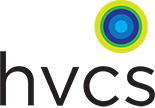Sex, Gender, and HIV/STDs
March 20 and 21, 2012 – 9a-5p – Hudson Valley LGBTQ Center, Kingston (Ulster County)
This two-day training is designed to help health and human services providers promote sexual health among their clients by building their capacity to talk sensitively and non-judgmentally about sexual identity, gender identity and sexual behaviors. Topics to be covered during the training include: sexual and gender identity; strategies for talking with clients about sexual health issues; HIV/STD prevention and harm reduction strategies for sexual behaviors.
As a result of this training, participants will be able to:
• Increase their awareness about the range of sexual and gender identities of their clients;
• Describe how homophobia and other forms of stigma and discrimination can impact a client’s sexual behaviors and ability to practice sexual risk reduction;
• Increase their comfort in discussing sexual and gender identity with clients;
• Describe how sexual trauma can impact a client’s sexual behaviors and risk for HIV/STDs; and
• Offer clients harm reduction options for sexual behaviors.
Prerequisite: Although there is no prerequisite for this course, it is strongly recommended that participants have previous knowledge or training on basic HIV/AIDS information.
Audience: All health and human service providers.

